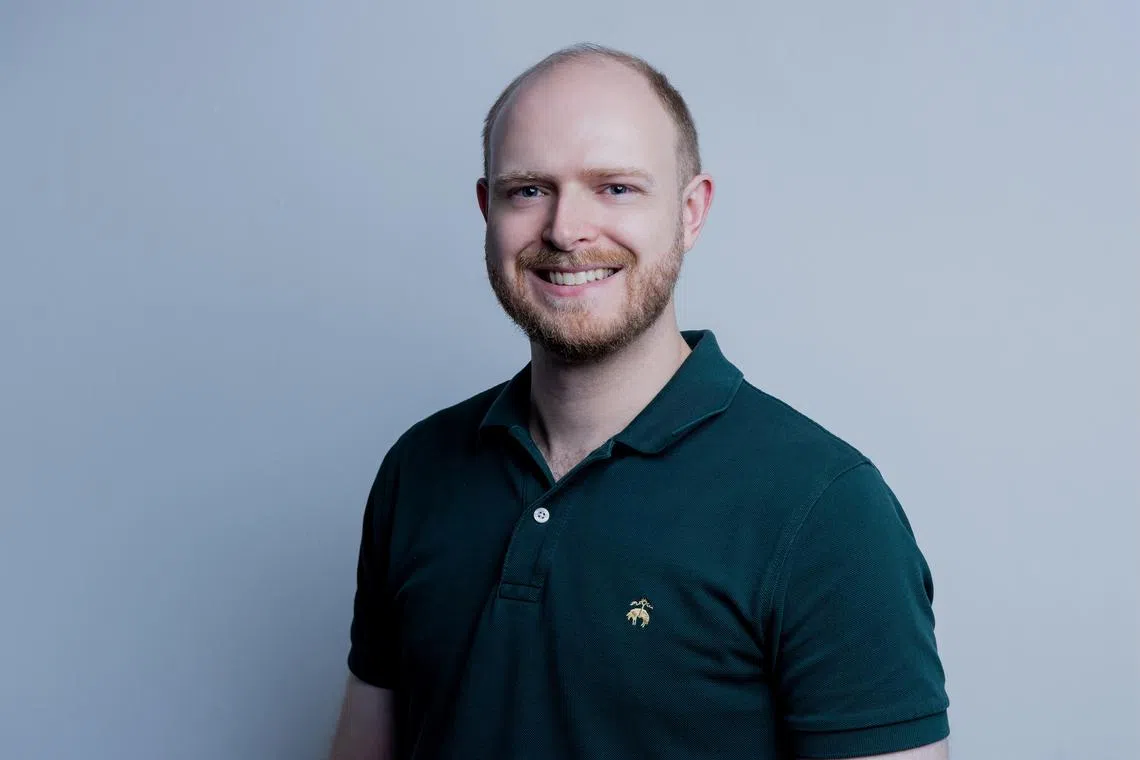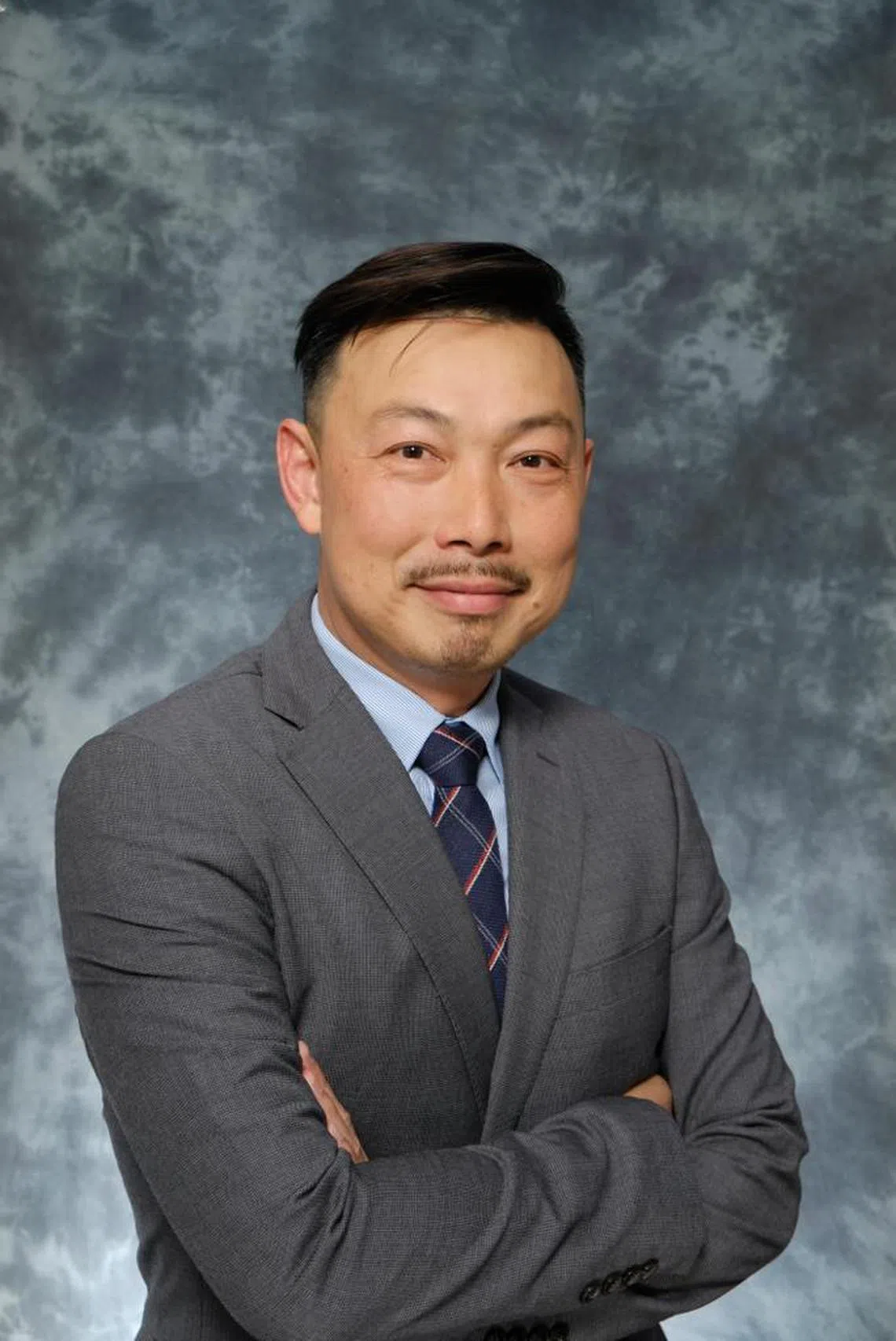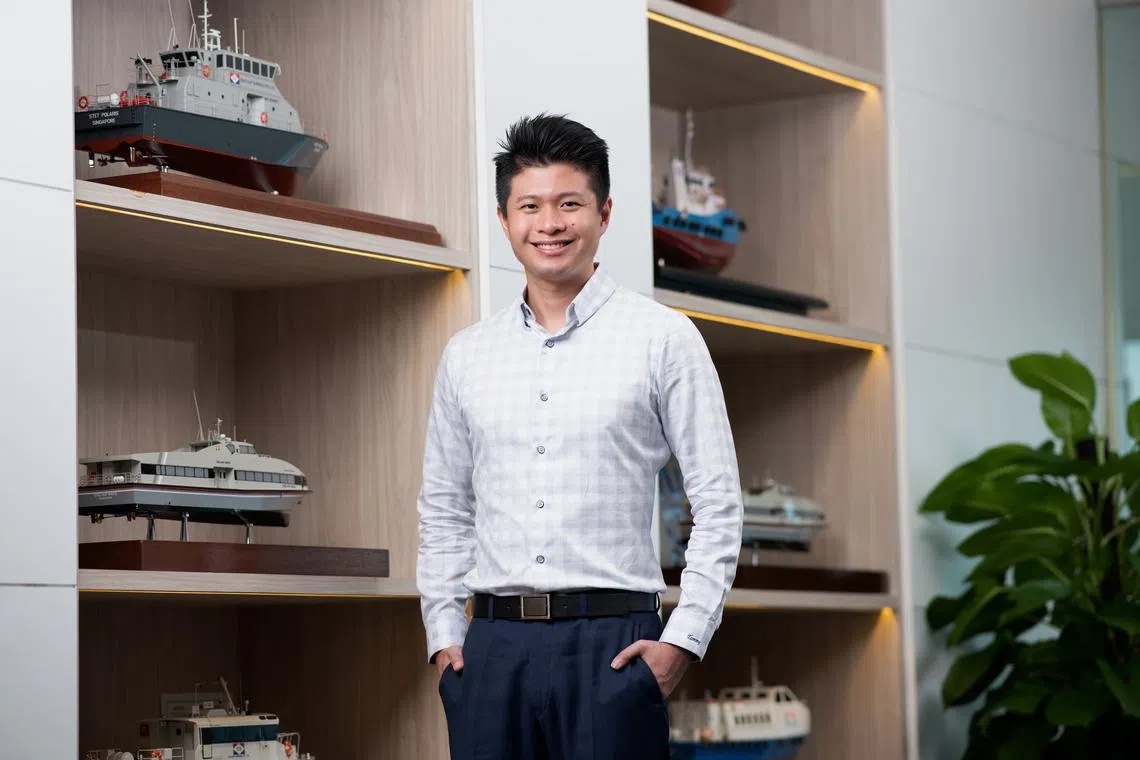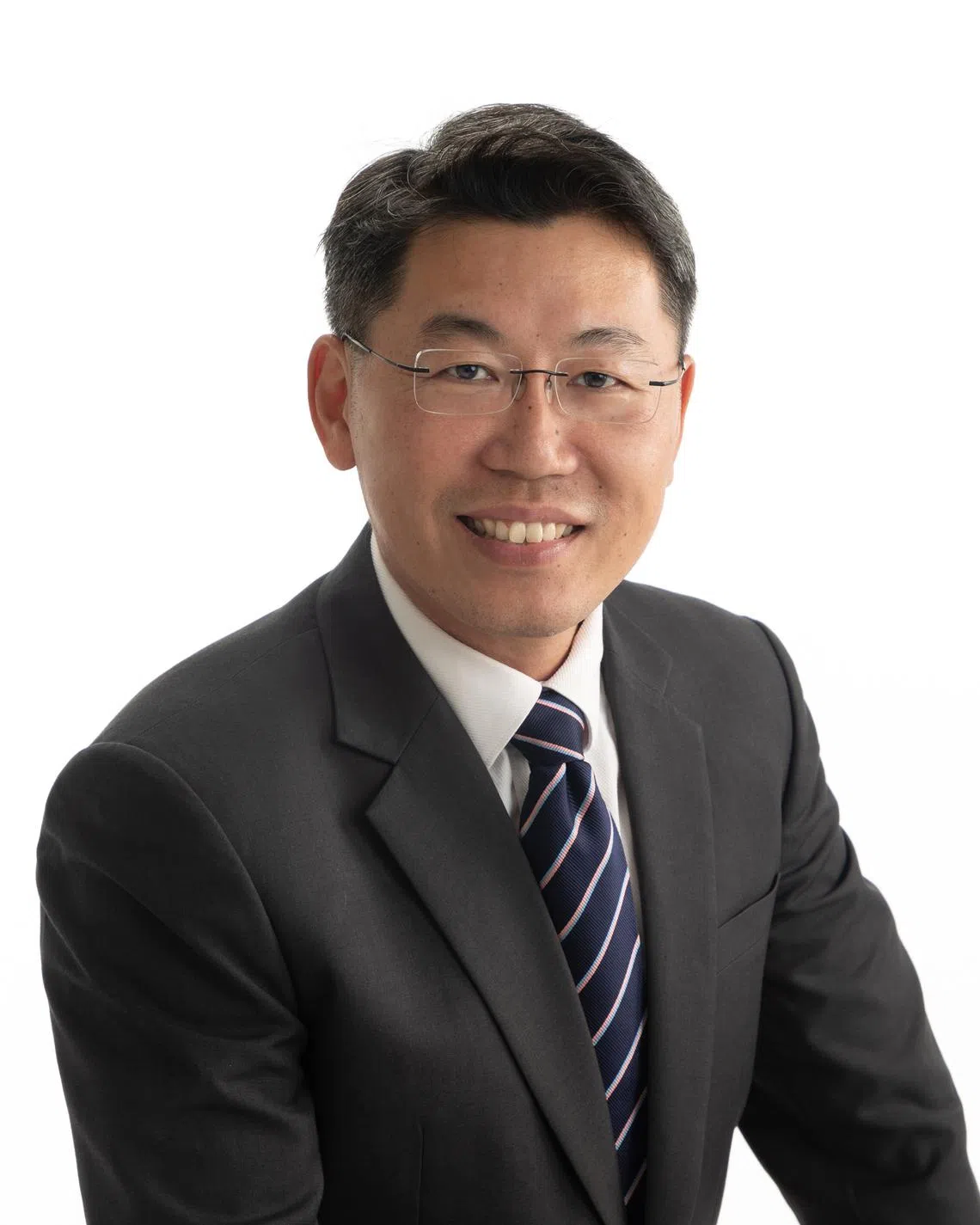Cleaner energy for industries
These finalists of the Emerging Enterprise Sustainability Awards offer solutions that are energy efficient or use greener power sources

WITH industrial sectors such as construction and maritime under growing regulatory scrutiny, these five companies are stepping up to provide low-carbon solutions: from electric construction machinery and harbour craft, to advanced solar management systems.
They are among 15 finalists of the Emerging Enterprise Sustainability Awards (EESA), launched in 2023 to recognise small and medium-sized enterprises driving growth in the green economy.
The EESA, which will have up to three recipients, is part of the wider Emerging Enterprise Awards.
Established in 2008, the Emerging Enterprise Awards empower startups and young businesses under 10 years old across Singapore and Asia, providing a springboard for growth.
This year’s awards are co-presented by The Business Times and OCBC, and supported by Mastercard, Rajah & Tann Asia, RSM Singapore, the Agency for Science, Technology and Research, Enterprise Singapore and Paia Consulting.
Driving greener buildings across South-east Asia
Ampotech’s AI-powered solutions help businesses manage their energy use
Navigate Asia in
a new global order
Get the insights delivered to your inbox.

We are an energy management company. We help businesses improve energy efficiency and the performance of distributed energy resources, such as solar rooftops, with artificial intelligence-enabled Internet of Things (IoT) solutions.
We track data using sensors, and our software has several applications including reporting, alerts and control of equipment.
Our technology helps businesses in sectors such as real estate, manufacturing and renewable energy to monitor and optimise energy usage.
It is hard to make existing commercial buildings and factories greener, due to the cost and complexity of retrofitting.
Therefore, we spent years developing a modular IoT solution to make energy analytics and efficiency technology accessible to any building, regardless of size, age or usage.
By automating data collection, our technology can then be integrated with external software that does sustainability reporting according to different standards.
Apart from monitoring individual electricity use in buildings, our software platform can also be used for more complex energy needs.
For instance, if a property has multiple energy resources such as rooftop solar, energy storage and electric vehicle (EV) charging stations, we can provide a single platform to integrate and manage these assets.
Our goal is to be the leading AI-enabled energy management company in Asia.
We currently operate in Singapore and Vietnam, and we are planning to open offices in Malaysia and Indonesia by early next year.
Our business in Singapore became profitable earlier this year, and we are now focused on expanding regionally.
Driving sustainability with zero-emission construction
New Energy Asia-Pacific aims to lead the transition to electric vehicles and machinery in the construction sector

We specialise in the production of EVs for the transportation and construction industry, as well as the development and distribution of EV charging stations.
In particular, we specialise in electric construction machinery, offering all-electric alternatives to traditional heavy diesel vehicles.
Our product range includes electric excavators, loaders and dump trucks powered by lithium batteries.
These machines are designed for zero emissions, reduced noise and easier maintenance – aligning with global sustainability efforts.
We aim to contribute to eco-friendly construction practices, while maintaining the performance and power of conventional industrial vehicles.
Our core business also involves the distribution of major EV brands, as we strive to advance a cleaner and greener transportation system with comprehensive support for the entire EV ecosystem.
One example of this support is our collaboration with the Hong Kong government and other organisations to develop EV charging infrastructure.
In the near future, we plan to expand our market presence, develop new technologies, and further our efforts in promoting sustainable transportation solutions.
Our goal is to increase market share in the South-east Asian market, with a focus on expanding to Thailand within the next year, while also paying attention to the African region.
These areas demonstrate significant growth potential, aligning with our strategy of market diversification and expansion.
Powering cleaner, greener job sites
Little Green Ranger provides sustainable power solutions for construction and landscaping

Little Green Ranger provides sustainable energy solutions that combine battery generators and solar panels, with a focus on the construction and landscaping industries.
We aim to replace equipment with high carbon emissions, such as traditional diesel generators, and change how electricity is generated and used in those sectors.
Our mission is to create cleaner, greener job sites by offering efficient energy solutions.
Our solutions are aligned with the environmental, social and governance (ESG) standards set by regulators, thus helping businesses with their ESG reporting.
We integrate our own software and IoT capabilities into products, allowing for the collection of data for accurate reporting.
While this technology is not new, we make it “ours” by coding the products to work within our own software ecosystem.
For instance, we have our own iOS app that connects to the cloud, allowing us to track the deployment of our devices.
We believe that the construction and landscaping sectors still have abundant growth potential for clean energy integration, and much more can be done in these spaces.
Expanding our energy storage systems through repurposed vehicle batteries is another focus. We aspire to embark on this in the next three to five years, which is when the first few batches of EVs in Singapore will reach the end of their useful life.
We also continuously improve the durability of our products – tailored to rugged conditions – to meet the conditions of sites where they are typically deployed.
Charting an electrified course in the maritime industry
Pyxis wants to lead the transition to electric harbour craft, offering vessels, IoT management tools and charging infrastructure

At Pyxis, we want to drive maritime sustainability by helping companies transition to electric harbour craft.
We offer a comprehensive ecosystem for maritime electrification through three core verticals: electric harbour craft; an IoT-enabled digital platform, Electra, to manage these vessels; and building the necessary marine charging infrastructure.
Electrification not only reduces emissions but also facilitates digitalisation, as data can be collected and used to improve operational efficiency.
In Singapore, our addressable market for electrification includes thousands of coastal vessels, representing a significant domestic market value.
However, Pyxis is built with a global outlook – in the long term, we aim to expand to sister ports across Asia-Pacific, including in Japan, Indonesia and Australia.
This vast, untapped market faces increasing regulatory and market pressures to transition to more sustainable solutions.
We’re also developing a range of fully electric vessels based on a standardised hull form, laying the eventual groundwork for scalable mass production.
Apart from producing vessels, we install infrastructure. In Singapore, we’ve launched a public marine charging station at Marina South Pier, as part of a two-year pilot scheme.
There, in partnership with SP Mobility, we’ve deployed a 150-kilowatt direct current fast charger.
From smart towns to solar recycling
Vector Green is scaling its solar lifecycle and utilities services and preparing for the rise in solar e-waste

We started our green mission in 2021 with a government initiative. There, we collaborated with the Housing and Development Board to digitise assets across over 60 sites nationwide.
This project aimed to facilitate smarter, more sustainable townships across the island.
Vector Green now focuses on two areas: solar lifecycle and integrated utilities management. Our services span all project phases: design and build, operations and maintenance, and engineering consultancy.
Our strategy involves a dual approach. First, we will maintain steady revenue through engineering, procurement and construction projects.
As part of this, we will update and expand our services to include high-value offerings. These include performance-enhancing solar panel regeneration services, as well as AI-based heating, ventilation and air conditioning optimisation.
We will also prepare for the anticipated surge in solar e-waste that will come in the next three to five years. We intend to do this by establishing long-term service agreements with leading solar developers in Singapore, and ensure that the solar recycling product is ready for scaled operations by 2025.
Second, we aim to leverage Vector InfoTech’s extensive presence in 13 countries to deploy, scale and repeat successful green solutions use cases, starting with South-east Asia. (Vector InfoTech and Vector Green have common shareholders.)
We will continuously partner with eco-focused startups to expand our presence in the energy management ecosystem.
For example, in 2022, we invested in EtaVolt, a company offering a full range of solar technologies – from AI-driven design tools to solar regeneration technologies and high-efficiency solar recycling processes.
Decoding Asia newsletter: your guide to navigating Asia in a new global order. Sign up here to get Decoding Asia newsletter. Delivered to your inbox. Free.
Copyright SPH Media. All rights reserved.





